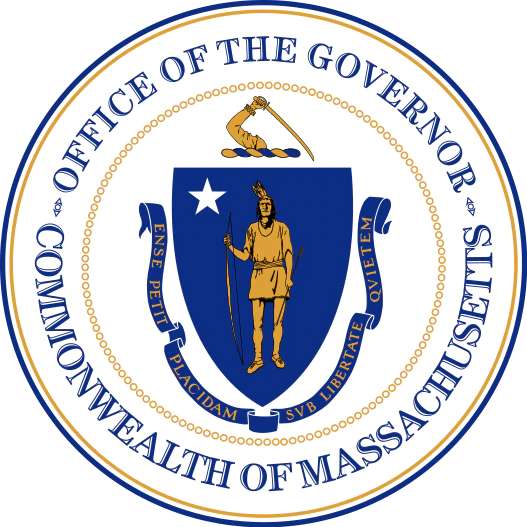SALEM, Mass. /Massachusetts Newswire/ — This week (May 18), the Baker-Polito Administration filed a Fiscal Year 2022 (FY22) supplemental budget that proposes investments in transportation, housing, environmental infrastructure, economic development, child care and education initiatives in Massachusetts.

The legislation includes approximately $1.7 billion in spending, supported by state tax revenues that exceed FY22 benchmarks through April by $4.23 billion (14%). The current surplus also prompted the Administration to formally upgrade the FY22 tax benchmarks today, increasing the total fiscal year projection to $37.666 billion.
Governor Charlie Baker made this announcement today in Salem at the site of what will be Massachusetts’ second offshore wind port. The supplemental budget would direct $100 million to ports in Salem, New Bedford and Somerset. These funds will support infrastructure to ensure Massachusetts becomes a global leader and a hub in the offshore wind industry.
“Unprecedented Fiscal Year 2022 revenues afford us this opportunity to make targeted investments in some of the Commonwealth’s most pressing areas of need,” said Governor Charlie Baker. “With rising prices due to inflation, ongoing supply chain issues, and other pandemic-related delays impacting both the time and cost it takes to complete projects, it is critically important that we act quickly to ensure that we are able to maximize the impact of these surplus tax dollars for the citizens of Massachusetts and expedite our response to critical needs.”
“This spending plan proposes initiatives that will benefit residents and communities across the state, with a focus on expanding opportunities for disadvantaged populations,” said Lieutenant Governor Karyn Polito. “The bill would increase the availability and quality of housing, build business opportunities in underserved communities, support transportation and environmental projects, and strengthen education and child care systems.”
The legislation includes funding to support a variety of transportation and environmental infrastructure projects, including $235 million for transportation projects, $200 million for Cape Cod water and sewer initiatives, and $100 million for ports in Salem, New Bedford, and Somerset. It also builds in funds necessary for the implementation of more than $9.5 billion provided through the Bipartisan Infrastructure Law (BIL) over the next five years, as well as funding that will allow Massachusetts to access additional federal funding through matching grants. These funds complement investments proposed in the pending MassTRAC infrastructure bond bill and recently announced in the FY23-27 Capital Investment Plan.
Continuing the Administration’s focus on addressing housing availability and building on the recently filed economic development legislation, An Act Investing in Future Opportunities for Resiliency, Workforce, and Revitalized Downtowns (FORWARD), this bill would provide $310 million for housing development. It proposes $200 million for workforce housing, $100 million for public housing redevelopment in Boston, Cambridge, Salem, and Worcester, and $10 million to increase permanent supportive housing for individuals and families experiencing chronic homelessness.
A further $180 million is allocated to targeted economic development initiatives, including $80 million to support efforts to improve small businesses’ options for purchasing commercial real estate, $50 million to provide financial assistance to socially and economically disadvantaged developers, particularly those owned by women and people of color, who are seeking to undertake large housing construction projects and $50 million to de-risk lending to small business owners in underserved markets where access to capital is otherwise limited.
“The unprecedented nature of Fiscal Year 2022 revenues will allow the Commonwealth to continue building our stabilization fund balance while making the critical investments proposed in this supplemental budget to fund infrastructure and spur economic development,” said Secretary of Administration and Finance Michael J. Heffernan. “We look forward to working with the Legislature to deliver on the important investments laid out in this responsible and thoughtful bill.”
“The Baker-Polito Administration continues to take a forward thinking approach to achieve the Commonwealth’s clean energy and environmental goals,” said Energy and Environmental Affairs Secretary Beth Card. “The filing of this FY22 Supplement Budget will deliver important funds to several ports, which serve critical roles in advancing and supporting the Commonwealth’s offshore wind projects.”
A number of other initiatives are supported in the supplemental budget proposal, including:
- $150 million for higher education campus physical infrastructure primarily at Mass College of Art and UMass Dartmouth;
- $55 million for child care, including $45 million for a new family child care home ownership and improvement program, which seeks to increase child care capacity while establishing financial security for family child care providers, and $10 million for innovative and flexible models of child care delivery;
- $55 million for nursing pathways programs;
- $30 million for schools and colleges to modernize science and biotechnology labs; and
- $28 million for other costs, including $5 million for the USS Constitution park, $10 million for miscellaneous legal settlements and judgments, and $13 million for collective bargaining agreements authorized in an outside section.
The legislation also includes several policy proposals, including
- A re-filed outside section that would update chapter 70, the school finance law, to establish early college and innovation pathways as an enrollment category in the Foundation Budget, to provide sustainable and predictable support for the growth of these pathways, which are demonstrating success in expanding access to college and careers for underrepresented students;
- A section that would temporarily allow school districts to reserve some of their state chapter 70 funding for future years without facing state financial penalties, thereby helping them to spend time-limited federal funds;
- A section that would permit youth to voluntarily access a broader range of department of youth services (DYS) supports beyond the current timeframe of 90 days after discharge from a DYS facility; and
- A section that would continue a department of public health standing order that facilitates insurance coverage for over-the-counter COVID tests and treatments beyond the COVID-19 public health state of emergency.





